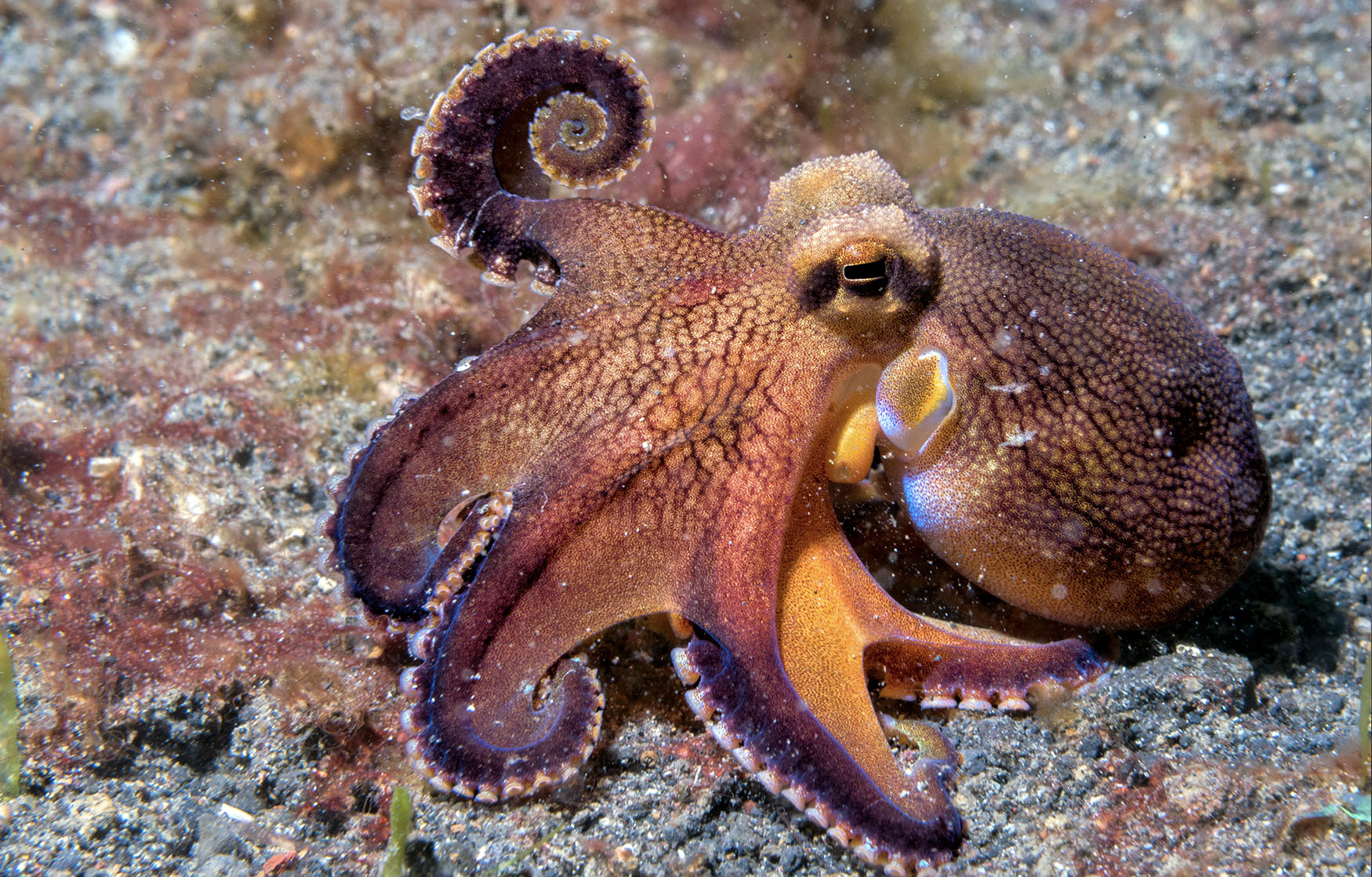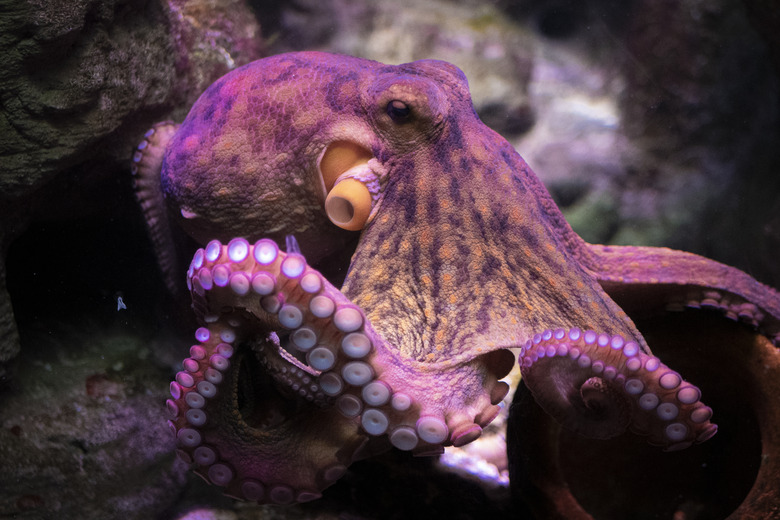Octopus Brains Are More Alien Than We Previously Thought
Some scientists have already made the argument that octopuses might be aliens. While the claim seems a bit out of this world, new research into their brains continues to show just how alien the octopus is, even if it doesn't end up being of extraterrestrial origins. According to a new study published in Current Biology, octopus brains create complex signals that scientists don't yet understand.
The study was made possible thanks to a new technique discovered by the researchers behind the study. This new technique allowed the researchers to record up to 12 hours of brain activity. The experiment itself is groundbreaking, but as noted above, scientists aren't quite sure what to make of the signals they discovered inside the octopus' brain.
Dr. Tamar Gutnick, the study's lead author, says that "octopuses are the perfect animal to study" if we want to understand exactly how the brain works. Not only do they have a large brain, but they also have unique bodies and advanced cognitive abilities, Gutnick explained in a statement. Imaging the brain activity of an octopus was no easy task, either, Gutnick noted.

Because octopuses don't have skulls, their brains are wrapped in a fragile capsule of cartilage. This capsule makes it very difficult to install electrode implants like those needed to capture brain activity. And, because octopuses can easily remove things from their body with their long arms, it wasn't possible to connect them to its body, either. So how exactly do you record an octopus's brain?
Well, the researchers had to rely on a workaround. First, they implanted a data logger and some electrodes into the octopus. This was done by making a small incision between the eyes and inserting the devices – which had been attached to a plastic card. This allowed them to implant the device directly into the octopus' brain lobes.
By doing this, the researchers were able to pick up clear brain signals from the octopuses. However, they have yet to decipher them. Some waves appear similar to mammalian brain activity, even somewhat similar to the human brain. Others are more alien, though. These were longer lasting and had slower oscillations than expected.
Additionally, the brain waves did not seem to adhere to the octopus' behavior in any way, either. Its movements, tasks, and other activities did not seem to provide any direct correlation with the waves that researchers were picking up, raising even more questions about these strange creatures that call Earth's oceans home.
